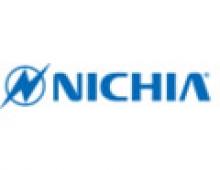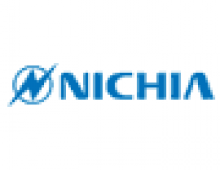
Court rules that Nichia, not inventor, owns blue LED patent
The key patent for gallium nitride-based blue LEDs and laser diodes belongs to Nichia Corp., the Tokyo District Court ruled Thursday (Sept. 19), rejecting a claim by Shuji Nakamura, who invented the technology while working for Nichia. Nakamura, now a professor at the University of California, Santa Barbara, filed a lawsuit against Nichia in August 2001 seeking ownership of the patent for two-flow MOCVD technology, which covers a key aspect of blue LED production. Nakamura also sought monetary compensation for his development of the GaN devices.
The two-flow MOCVD technology differentiates Nichia's GaN-based optical devices from those of competitors. Conceived in 1991, the two-flow MOCVD technology enabled the creation of high-quality GaN layers which led to bright diodes with higher power and longer lives than competing devices. The technology was registered in Japan as patent No. 2628404 under Nichia Corp.'s name, and is commonly known as the 404 patent.
Nakamura's lawsuit attracted industrywide interest because it raised questions about the ownership of inventions by individual engineers and researchers while employed by a company, and also raised the sensitive issue of workers in Japan not being adequately compensated for their developments. The case led many companies to review their systems of compensating workers for patent development.
The Tokyo court on Thursday ruled that Nakamura and Nichia had a tacit contract under which Nakamura gave the ownership of his invention to Nichia. The court said, however, that patent law indicates Nakamura is eligible for certain rewards for his achievements.
Nakamura expressed dissatisfaction with the ruling and said he will appeal the case. Hidetoshi Masunaga, a lawyer representing Nakamura, said he believes the ruling will be reversed by a higher court.
The Tokyo District Court must still rule on the monetary compensation due Nakamura for his development. Nakamura had claimed that the court could reject his claim for patent ownership but still find that Nichia owed him about $17 million for his invention.
Nichia welcomed the ruling, and said it will continue to confront Nakamura in court. "Though we are no longer using the 404 patent technology," a Nichia spokesman said.
Nakamura's lawsuit attracted industrywide interest because it raised questions about the ownership of inventions by individual engineers and researchers while employed by a company, and also raised the sensitive issue of workers in Japan not being adequately compensated for their developments. The case led many companies to review their systems of compensating workers for patent development.
The Tokyo court on Thursday ruled that Nakamura and Nichia had a tacit contract under which Nakamura gave the ownership of his invention to Nichia. The court said, however, that patent law indicates Nakamura is eligible for certain rewards for his achievements.
Nakamura expressed dissatisfaction with the ruling and said he will appeal the case. Hidetoshi Masunaga, a lawyer representing Nakamura, said he believes the ruling will be reversed by a higher court.
The Tokyo District Court must still rule on the monetary compensation due Nakamura for his development. Nakamura had claimed that the court could reject his claim for patent ownership but still find that Nichia owed him about $17 million for his invention.
Nichia welcomed the ruling, and said it will continue to confront Nakamura in court. "Though we are no longer using the 404 patent technology," a Nichia spokesman said.


















